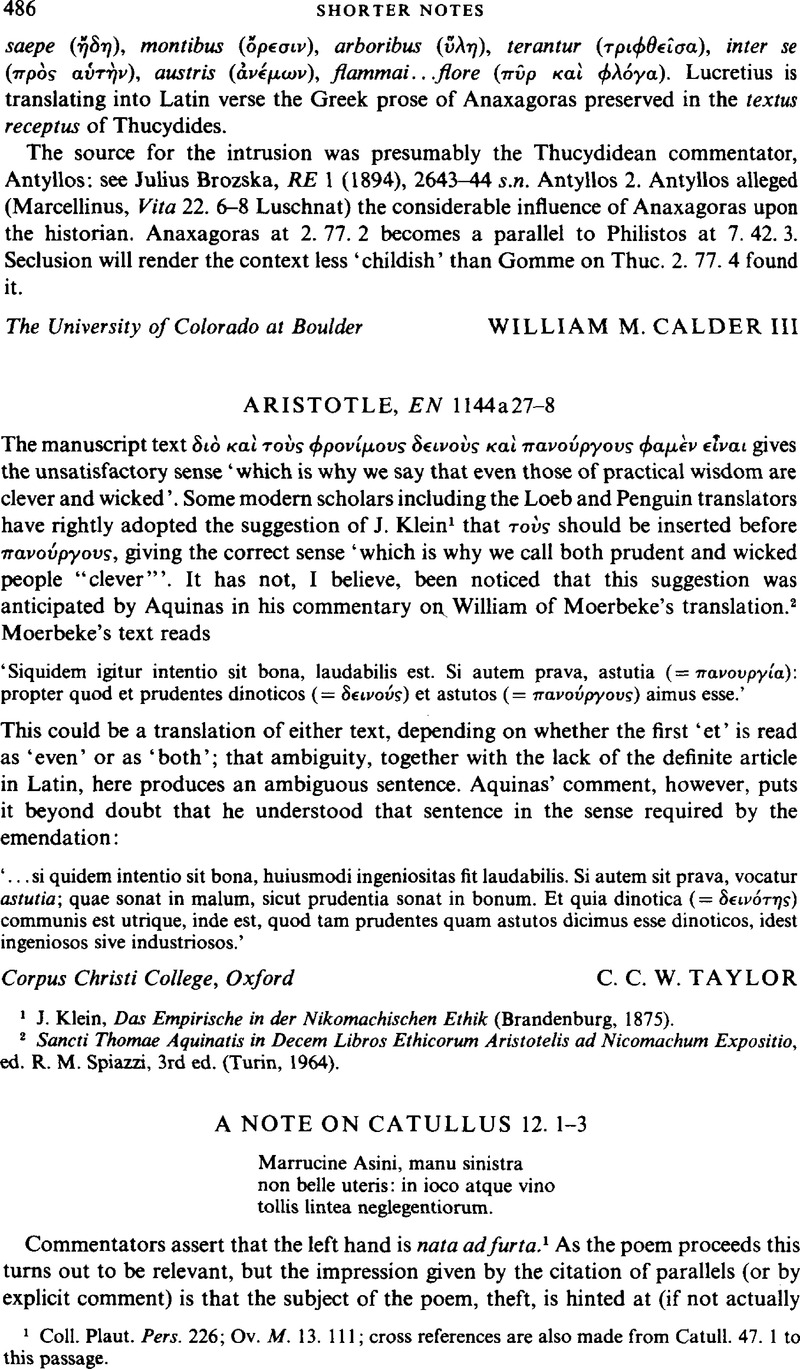No CrossRef data available.
Article contents
A note on Catullus 12. 1–3
Published online by Cambridge University Press: 11 February 2009
Abstract

- Type
- Shorter Notes
- Information
- Copyright
- Copyright © The Classical Association 1984
References
1 Coll. Plaut, . Pers. 226Google Scholar; Ov. M. 13. 111; cross references are also made from Catull. 47. 1 to this passage.
2 See Nisbet, and Hubbard, at Hor. O. 2. 11, p. 167Google Scholar: Marrucine is taken to suggest rusticity (and not to be a cognomen).
3 With the punctuation of X (after uteris; so Klotz) manu sinistra non belle uteris is isolated by the stop and one is given pause to imagine any distasteful use of the left hand (e.g masturbation: on laeva manus see Adams, J. N., The Latin sexual vocabulary [London, 1982], 209)Google Scholar; in ioco atque vino gives a new turn. With a colon after vino (as e.g. Ellis and Kroll) table manners are more prominent.
4 Palmer's, n. at Hor. S. 2. 4. 38–9Google Scholar argues that the actual eating was done not reclining, but prone. The evidence (Plaut, . Mil. 753 ff.Google Scholar) is a joke pressed too literally, but in any case the left hand seems to have been regarded as ‘unclean’ in Rome as in many other cultures (and therefore not suitable for eating with); see Adams, loc. cit.
5 Catull. 33. 3; Juv. 3. 47–8; Mart. 12. 29. 3(tu licet observes dextram teneasque sinistram …).
6 Ilia, altera, laeva: the increasing specification is a piece of naturalistic rhetoric and explains fully why altera (or ilia altera) was not sufficient in itself.
7 Cf. Eleg. in Maec. 1. 13; Cic. Att. 14. 20. 5.
8 Amicae manus? See Adams, loc. cit.
9 I would like to thank Dr M. Winterbottom and the editors for their comments on this matter.




